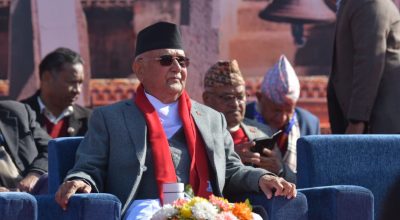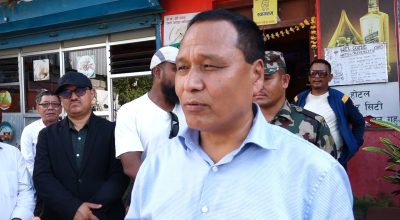
Kathmandu, Aug 30: Nepal and Bhutan have finalised the draft of a bilateral trade agreement.
The joint-secretary level meeting of the two nations settled the draft in Kathmandu today with due priority to enhancing bilateral trade and economic cooperation.
“We have been preparing for the trade agreement with Bhutan since long. The two sides have finalised the draft of the agreement today and both countries will soon ink an agreement to this effect,” informed Nabaraj Dhakal, joint secretary at the Ministry of Industry, Commerce and Supplies (MoICS).
As the draft needs to be endorsed by the parliament of Bhutan, it might take a few more weeks to decide the date for signing the agreement, he informed.
Following this, commerce ministers of both the nations are expected to ink the trade agreement.
In the last fiscal year, Nepal had imported goods worth Rs 1.6 billion from Bhutan. However, the volume of export of Nepali goods to Bhutan is merely in millions, as per MoICS.
As per MoICS, Nepal basically exports goods like soaps and noodles to Bhutan. Meanwhile, Nepal imports food items and clothes from Bhutan.
“However, we have huge export potential with Bhutan and draft of the bilateral trade agreement has focused on it,” said Dhakal.
Though Dhakal was unwilling to disclose the provisions in the draft of the agreement, he stated that priority has been given to trade promotion, import-export facilitation, cargo movement and tax waiver on some goods in both countries.
“Following the signing of the bilateral trade agreement, we will work on the protocol and finalise it as soon as possible,” he added.
As the draft of the agreement has been finalised, MoICS plans to sit together with domestic traders and the private sector to identify goods with high export potential to Bhutan and promote them. “We will also discuss with traders and customs officials on potential goods that can be given tax facilities,” said Dhakal.
As per statistics of Nepal Rastra Bank, the country’s total trade deficit widened by 17.2 per cent to Rs 1,211.96 billion in the first 11 months of last fiscal year, while the export-import ratio increased marginally to 6.8 per cent in the review period from 6.7 per cent in the corresponding period of the previous fiscal.
“It is through trade diversification and exports that we can balance our trade. The government will focus on promoting trade with India and other third countries,” added Dhakal.














